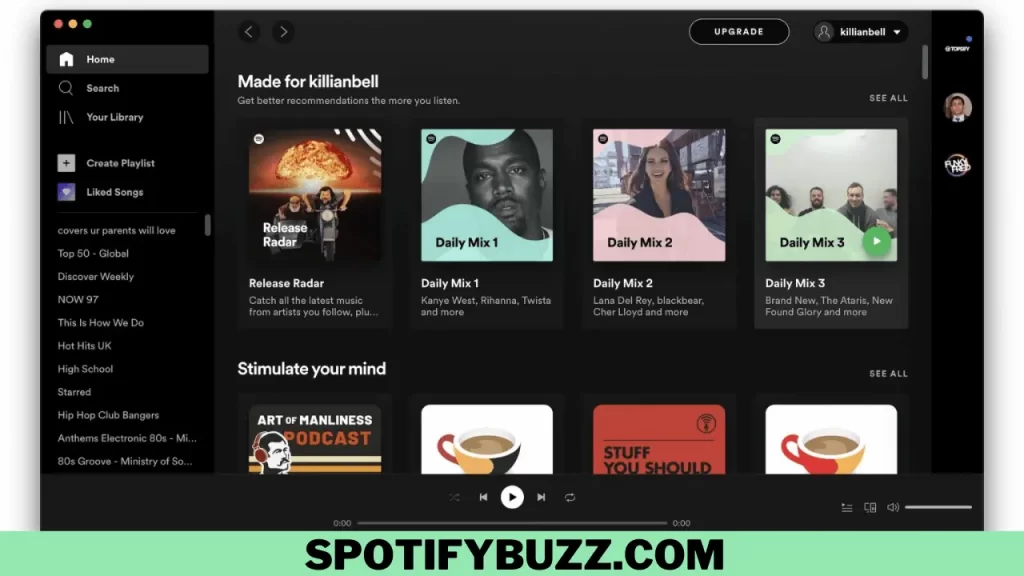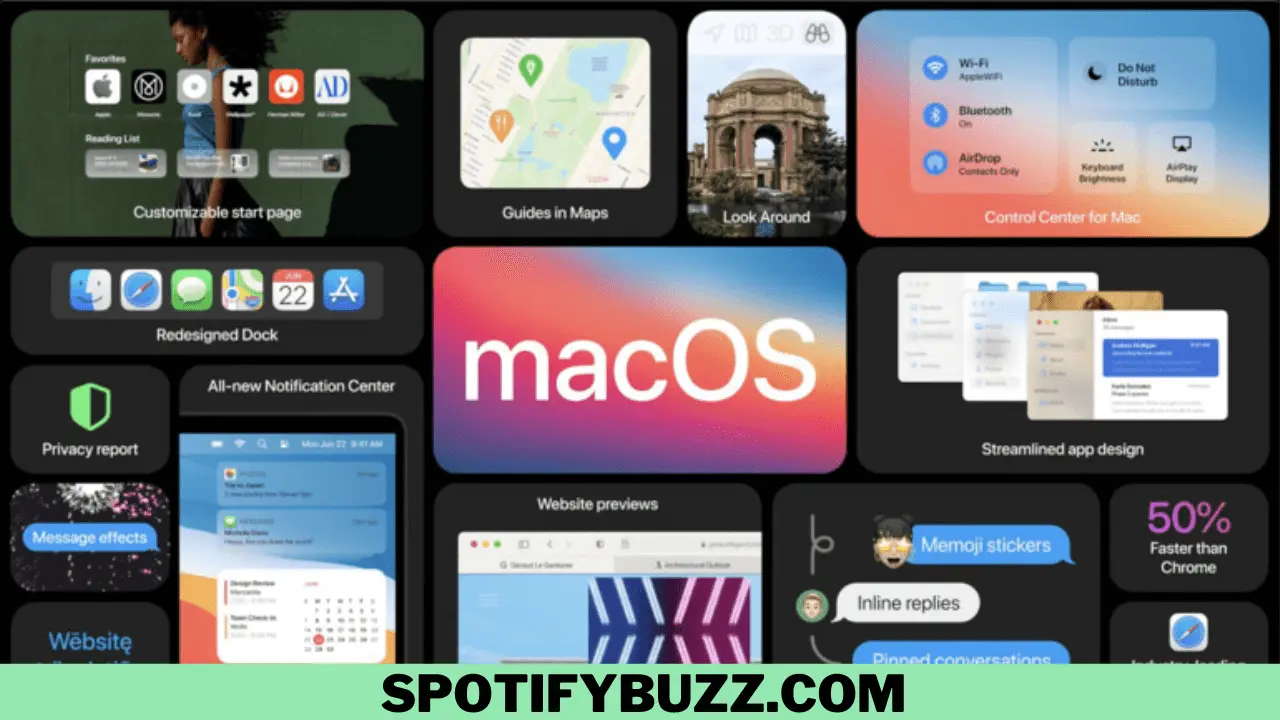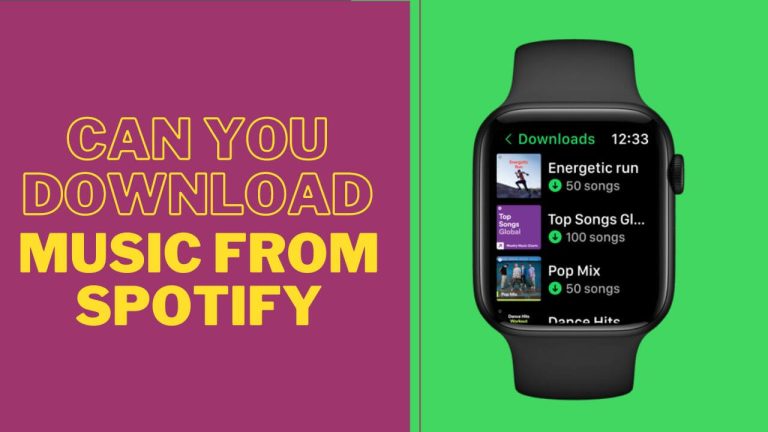Spotify Beta Version Released with Native M1 Mac Support
Spotify Beta Version Released with Native M1 Mac Support. The release of the Spotify Beta Version is a significant development that promises to enhance Spotify’s user experience and efficiency on Apple’s latest computers.
In a world where music is the food for the soul, Spotify has made it even easier for Mac users to feast on their favorite tunes with the latest Beta Version release. With native M1 Mac support, the streaming giant has taken a giant leap towards enhancing user experience by providing smoother, faster, and more efficient performance. As the symphony of technology and music continues to evolve, Spotify has emerged as a harmonious blend. This latest development is a testament to their unyielding commitment to innovation and excellence. Spotify Beta Version Released with Native M1 Mac Support So, tune in, turn up the volume, and let the rhythm of Spotify’s latest release carry you on a euphonious journey of musical ecstasy.
Native M1 Mac Support
Spotify Beta Version Released with Native M1 Mac Support The newly-released Spotify beta version has caused quite a stir in the tech world, thanks to its much-awaited native M1 Mac support. This new feature promises to enhance the overall Spotify experience for Mac users, and it’s essential to understand its key benefits and how it compares to previous versions.
- What Is M1 Mac Support?
M1 Mac support refers to Spotify’s compatibility with the latest Apple silicon technology. This means the app is optimized to work seamlessly with the M1 chip, resulting in faster load times, smoother transitions, and improved overall performance.
- M1 Mac Support Bnenfits:
Some of the specific benefits of M1 Mac support include the following:
- Reduced CPU usage: The M1 chip is designed to handle complex processes more efficiently than previous Mac processors, which translates to lower CPU usage when running Spotify.
- Longer battery life: Since the M1 chip is more energy-efficient, using Spotify on an M1 Mac can lead to longer battery life than previous versions.
- Improved sound quality: The M1 chip’s audio processing capabilities can enhance the excellent quality of Spotify playback.

How M1 Mac support improves performance and user experience
Spotify Beta Version Released with Native M1 Mac Support, the benefits of M1 Mac support are not limited to faster load times and better sound quality. The new feature also improves user experience in several ways, including:
- Better integration with macOS: With native M1 Mac support, Spotify is now more deeply integrated with the macOS operating system. This means that features like AirPlay, Siri integration, and keyboard shortcuts work more smoothly and efficiently.
- More reliable syncing: Since the M1 chip can handle complex processes more efficiently, syncing playlists and offline playback is faster and more reliable.
- Improved interface design: The new version of Spotify has been optimized for the M1 chip, resulting in a sleeker and more intuitive interface design explicitly tailored for Mac users.
Comparison of M1 Mac support to previous versions
Before M1 Mac support, Spotify was designed to run on Intel-based Macs using the Rosetta 2 translation technology. While this worked reasonably well, occasional performance issues and glitches still existed. With the release of native M1 Mac support, Spotify users can expect a significant improvement in overall performance, stability, and speed.
Compatibility with other devices
Spotify Beta Version Released with Native M1 Mac Support, and this version with native M1 Mac support is designed explicitly for M1 Macs, including the MacBook Air, MacBook Pro, and Mac Mini. This means the application has been optimized for the Apple Silicon architecture, resulting in faster and smoother performance. But the beta version with native M1 Mac support is compatible with M1 Macs and other devices, including older Mac models running on Intel processors.
This compatibility allows users to access their music seamlessly across all their devices. Although the performance on these devices may be slower than the M1 Macs, Spotify’s beta version still runs seamlessly and efficiently.
Comparison with Compatibility with Other Operating Systems
- Regarding compatibility with other operating systems, Spotify’s beta version with native M1 Mac support has not yet been released for other systems such as Windows, Linux, or iOS.
However, the official release of this version is expected to include compatibility with all of these systems.
How Compatibility with Other Devices Improves User Experience
Compatibility with other devices is essential in improving the user experience of a music streaming service.
- With Spotify’s beta version with native M1 Mac support, users can easily switch between their Mac devices without worrying about compatibility issues or losing their saved playlists and preferences. This seamless transition between devices allows for a more personalized and uninterrupted listening experience.
- Also, compatibility with other operating systems will further enhance the user experience, making it more accessible to a broader range of users. This means that Spotify’s beta version with native M1 Mac support will benefit Mac users and attract more users from different platforms.

Audio Quality Improvements
In addition to native M1 Mac support, the latest beta version of Spotify also significantly improves audio quality. These improvements are a welcomed addition for music enthusiasts who desire high-quality sound. Here’s what you need to know about the audio quality improvements in the Spotify beta version:
- The beta version of Spotify supports the SBC codec, which offers better audio quality.
- The streaming bitrate has been increased to 160 kbps for non-premium users and 320 kbps for premium users.
- Spotify has also implemented automatic volume normalization to ensure consistent sound levels across tracks.
Comparison of the audio quality with previous versions
- The previous version of Spotify used the Ogg Vorbis codec, which could have offered better audio quality than the SBC codec.
- The streaming bitrate for non-premium users was 96 kbps, and for premium users, it was 320 kbps.
- The lack of automatic volume normalization meant that users had to adjust the volume manually between different tracks.
How the audio quality improvements enhance user experience
- The higher bitrate and support for the SBC codec mean that users can enjoy better sound quality with more detail and clarity.
- Automatic volume normalization ensures a consistent sound level, which eliminates the need for manual adjustments between tracks.
- The enhanced audio quality enhances the overall user experience, making listening to music on Spotify more enjoyable.
Bug Fixes & Improvements
As we have gone through in detail about “Spotify Beta Version Released with Native M1 Mac Support “, now let us talk about the bug fixes and improvements that the new beta version of Spotify for Mac comes with. Here are some of the notable changes:
- Native M1 Mac support: The new version is optimized for Apple’s M1 chip, which means it will run more efficiently on the latest Mac models.
- Faster startup time: Users have reported that the new version launches faster than previous versions.
- Improved search functionality: The search feature has been refined to provide more accurate results and a better user experience.
- General bug fixes: The new version includes various bug fixes, which should improve stability and reliability.
i. Comparison with previous versions
The new beta version of Spotify for Mac is a significant improvement compared to the previous versions. Users can expect a more streamlined and efficient experience, with faster startup times and improved search functionality. The addition of native M1 support means that the app will run more smoothly on the latest Mac models.
ii. How the bug fixes and improvements enhance user experience
The bug fixes and improvements in the new beta version of Spotify for Mac are designed to enhance the user experience. Here’s how:
- Native M1 support: Users with the latest Mac models will experience faster and more efficient performance.
- Faster startup time: The new version will launch quickly, allowing users to start playing their favorite music without any delays.
- Improved search functionality: Users can find the music they want more efficiently, with more accurate search results.
- General bug fixes: The bug fixes included in the new version should improve stability and reliability, ensuring that the app runs smoothly without hiccups.
Potential Impact
Spotify Beta Version Released with Native M1 Mac Support The release of the beta version of Spotify with native M1 Mac support has the potential to impact both the user experience and Spotify’s revenue significantly.
Impact on user experience:
- The native M1 Mac support will enhance the performance and stability of the app, resulting in a smoother and more seamless user experience.
- The improved user experience will likely increase user retention and satisfaction, which may result in higher engagement and more frequent app usage.
- The bug fixes and improvements in the beta version will address issues that users may have experienced in previous versions, which can further enhance the overall user experience.

Impact on Spotify’s revenue:
- The release of the beta version with native M1 Mac support can attract new users who previously may have been deterred by performance issues on their Macs.
- The improved user experience can lead to higher engagement and usage, translating to increased revenue through ad impressions and paid subscriptions.
- The bug fixes and improvements can help mitigate user churn, reducing the risk of lost revenue from users switching to other music streaming services.
Comparison to other music streaming services:
- The release of the beta version with native M1 Mac support puts Spotify on par with its competitors regarding performance on the M1 Mac platform.
- However, the continued development and optimization of the app will be necessary to maintain a competitive edge and attract and retain users in a crowded and competitive music streaming market.
Frequently Asked Questions
Final Anaysis:
Spotify Beta Version Released with Native M1 Mac Support, The release of the Spotify beta version with native M1 Mac support is a highly anticipated development for Spotify users who use M1 Macs. The beta version’s release demonstrates Spotify’s commitment to keeping up with technological advancements and providing the best possible user experience.
The native M1 Mac support will improve and optimize the app’s performance for M1 Macs. Additionally, the beta version release may also positively impact Spotify’s revenue, as it could attract more M1 Mac users to the platform. This development is a win-win situation for both Spotify and its users.






